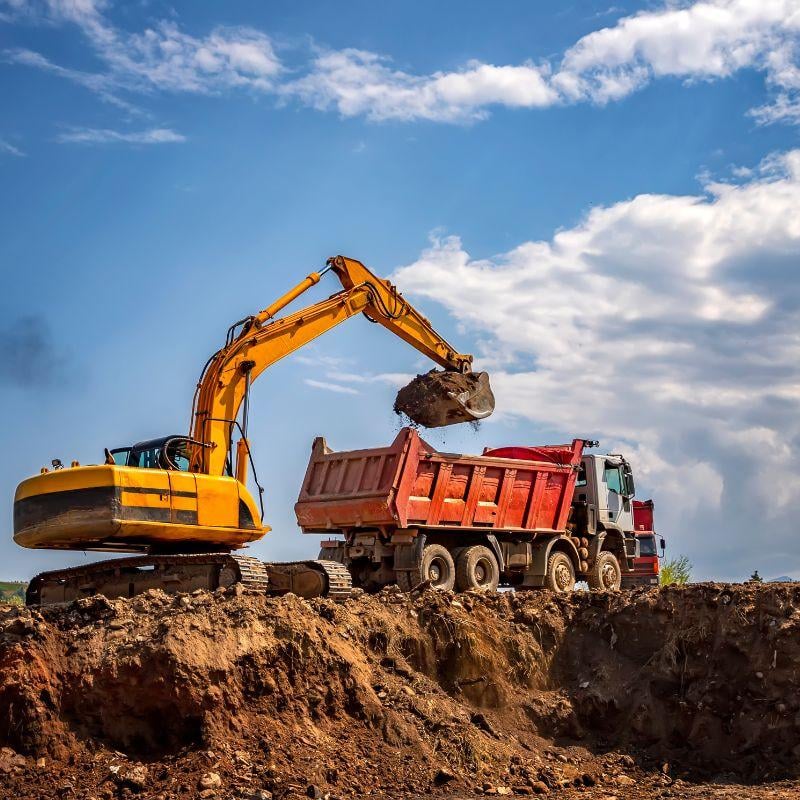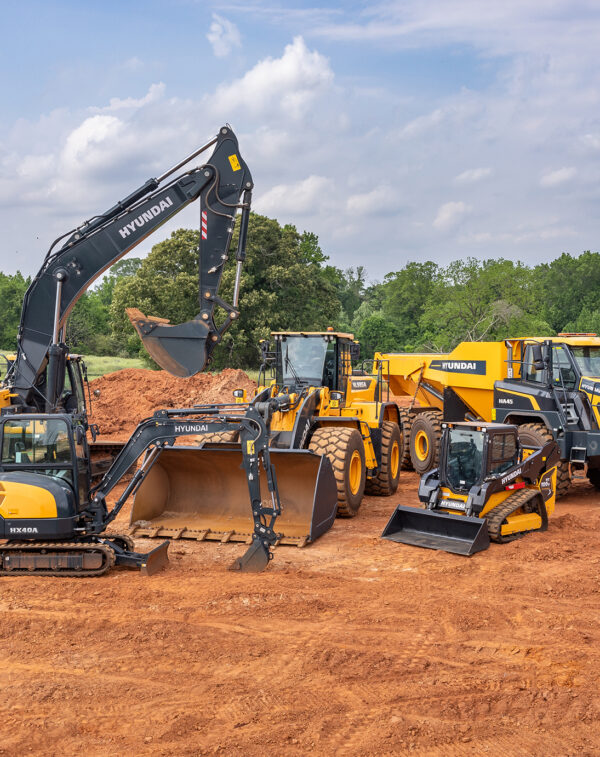Discovering the Financial Advantages of Renting Construction Equipment Compared to Owning It Long-Term
The decision between having and renting building tools is pivotal for financial management in the market. Renting deals immediate price savings and functional adaptability, enabling companies to allocate sources more efficiently. Comprehending these nuances is essential, particularly when thinking about exactly how they line up with particular job requirements and monetary methods.

Cost Contrast: Renting Out Vs. Owning
When examining the financial ramifications of owning versus renting building devices, a detailed price comparison is essential for making notified choices. The option between renting and possessing can substantially affect a company's profits, and recognizing the associated prices is essential.
Leasing construction tools generally entails lower ahead of time expenses, permitting services to designate resources to other operational demands. Rental agreements typically include versatile terms, enabling firms to accessibility advanced equipment without long-lasting commitments. This adaptability can be especially beneficial for temporary tasks or fluctuating workloads. However, rental prices can collect with time, possibly exceeding the expense of ownership if tools is required for an extended duration.
On the other hand, owning building tools calls for a considerable initial financial investment, in addition to ongoing prices such as insurance, funding, and devaluation. While possession can lead to lasting savings, it also binds capital and might not offer the exact same level of adaptability as leasing. Additionally, owning tools requires a dedication to its utilization, which might not always straighten with job demands.
Inevitably, the decision to rent or own should be based upon a comprehensive evaluation of specific project needs, financial capability, and long-lasting tactical objectives.

Upkeep Costs and Responsibilities
The choice in between owning and renting construction devices not just involves financial factors to consider but likewise incorporates ongoing upkeep costs and responsibilities. Possessing devices needs a significant commitment to its maintenance, that includes regular examinations, fixings, and possible upgrades. These duties can swiftly accumulate, bring about unforeseen expenses that can stress a spending plan.
In contrast, when leasing tools, upkeep is commonly the responsibility of the rental company. This setup enables professionals to avoid the monetary problem connected with wear and tear, in addition to the logistical challenges of scheduling repair work. Rental arrangements typically consist of stipulations for upkeep, implying that service providers can concentrate on completing tasks instead of stressing over devices condition.
In addition, the varied variety of equipment available for rent enables firms to choose the most up to date versions with advanced innovation, which can boost efficiency and productivity - scissor lift rental in Tuscaloosa, AL. By opting for rentals, services can stay clear of the lasting obligation of equipment devaluation and the linked upkeep headaches. Inevitably, assessing upkeep costs and duties is essential for making an informed choice regarding whether to rent or own construction devices, substantially affecting overall project expenses and operational efficiency

Depreciation Influence On Ownership

A substantial factor to take into consideration in the choice to own building and construction tools is the influence of devaluation on general ownership prices. Depreciation stands for the decrease in value of the tools with time, affected by variables such as usage, wear and tear, and innovations in modern technology. As devices ages, its market value lessens, which mobile heavy machinery can dramatically affect the proprietor's economic position when it comes time to sell or trade the equipment.
For construction firms, this devaluation can translate to considerable losses if the devices is not made use of to its maximum possibility or if it lapses. Owners have to make up depreciation in their financial projections, which can lead to greater general expenses compared to renting. Additionally, the tax obligation implications of devaluation can be complicated; while it might give some tax obligation advantages, these are typically balanced out by the truth of lowered resale worth.
Inevitably, the burden of depreciation highlights the importance of comprehending the long-term economic commitment included in possessing building tools. Firms need to very carefully examine how commonly they will certainly use the equipment and the potential monetary effect of depreciation to make an educated decision regarding ownership versus renting out.
Monetary Versatility of Renting
Leasing building equipment supplies substantial economic versatility, enabling firms to allocate sources much more efficiently. This versatility is particularly critical in a market characterized by varying job demands and varying workloads. By opting to rent out, services can avoid the significant funding expense required for purchasing tools, protecting capital for various other functional needs.
Furthermore, renting devices makes it possible for firms to customize their equipment selections to details project demands without the long-lasting dedication related to ownership. This means that businesses can conveniently scale their equipment inventory up or down based on expected and current task demands. As a result, this flexibility minimizes the danger of over-investment in equipment that may become underutilized or obsolete gradually.
An additional economic advantage of leasing is the possibility for tax benefits. Rental settlements are typically thought about general expenses, permitting immediate tax deductions, unlike old excavators for sale depreciation on owned and operated tools, which is spread over a number of years. scissor lift rental in Tuscaloosa, AL. This prompt expenditure recognition can further boost a business's money setting
Long-Term Task Factors To Consider
When assessing the long-lasting needs of a building and construction company, the decision between renting out and owning tools comes to be more complex. Key variables to think about consist of job duration, frequency of use, and the nature of upcoming tasks. For jobs with extended timelines, buying equipment might seem useful because of the capacity for lower general prices. Nonetheless, if the devices will not be used continually throughout jobs, having might bring about underutilization and unnecessary expenditure on storage, maintenance, and insurance.
The construction market is evolving rapidly, with brand-new tools offering enhanced performance and safety and security functions. This adaptability is particularly advantageous for services that deal with diverse projects needing various original site types of devices.
Additionally, monetary security plays a vital function. Owning equipment usually entails considerable capital investment and depreciation concerns, while renting out enables even more foreseeable budgeting and capital. Ultimately, the selection between owning and leasing should be straightened with the strategic objectives of the building and construction organization, taking into consideration both existing and expected project needs.
Final Thought
In conclusion, renting building and construction equipment provides significant monetary benefits over long-term possession. Ultimately, the choice to rent rather than own aligns with the dynamic nature of building and construction jobs, permitting for adaptability and accessibility to the latest equipment without the financial burdens connected with possession.
As equipment ages, its market value decreases, which can significantly influence the proprietor's economic position when it comes time to sell or trade the equipment.
Renting out building tools supplies substantial financial versatility, permitting companies to allot resources extra efficiently.Additionally, leasing devices makes it possible for companies to tailor their devices options to specific job requirements without the lasting dedication associated with ownership.In verdict, renting building and construction equipment provides substantial monetary advantages over long-term possession. Inevitably, the choice to rent rather than very own aligns with the vibrant nature of building and construction tasks, allowing for flexibility and accessibility to the most recent devices without the monetary worries linked with ownership.